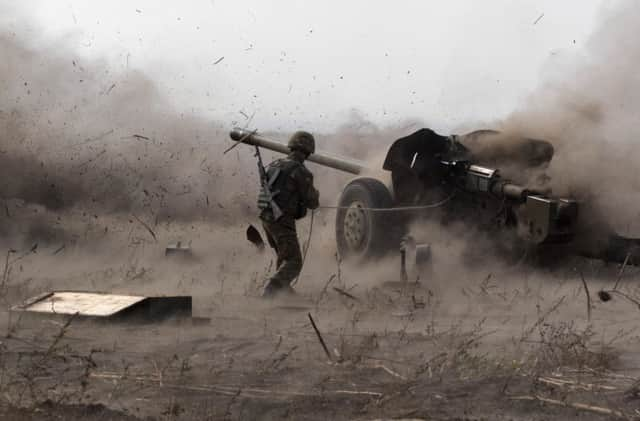‘Lives at risk’ after Ukraine ultimatum


Leaders in the rebel-controlled Luhansk region of Ukraine expelled some ten organisations, including the UN, for what they said were “grave violations” of local law, giving them just a few hours to leave.
“I am alarmed by the news that the de facto authorities in eastern Ukraine have ordered UN agencies in Luhansk to end operations and to leave the area by 25 September,” said Stephan O’Brien, head of the UN relief operations in Ukraine, adding that NGOs had been given till today to pack their bags.
Advertisement
Hide AdAdvertisement
Hide AdMr O’Brien said the failure by the Luhansk leaders to allow the UN and NGO agencies to work in eastern Ukraine “constitutes a blatant violation of International Humanitarian Law.”
He also warned that restrictions already in place on the aid agencies already meant that: “Hospitals cannot perform surgery because they lack anaesthesia. Some 150,000 people are not receiving monthly food distributions,” and that “lives were at risk”.
The war in Ukraine has now claimed around 8,000 lives and inflicted significant damage to the infrastructure and economy of the conflict zone, so creating a need for humanitarian agencies.
The UN says some 1.3 million people’s access to water is at risk and that 30,000 have not received urgent shelter materials or household goods. But rebel leaders have accused the agencies of a number of law violations. The French charity Doctors Without Borders (MSF) said it had been accused of storing unregistered medicines, an accusation it rejected in a statement that condemned the rebel decision.
“We find the decision unacceptable given the significant medical and humanitarian needs of people affected by the ongoing conflict in Luhansk,” says Dr Bart Janssens, the NGO’s director of operations.
“MSF has been one of the few international organisations providing vital assistance in Luhansk for more than a year. We have been dedicated to supporting doctors and nurses to be able to carry on their crucial work. As in all conflict zones where MSF works, our only aim has been to help vulnerable people, no matter their political beliefs or which side of the frontline they find themselves on.”
A spokesman for PIN, a Czech aid agency, said it was unware that it had broken any law.
But Vasiliu Nikitin, the self-proclaimed Luhansk region’s cabinet chief, said both the International Rescue Committee, led by David Miliband, and PIN “provided no meaningful assistance at all” and he also reiterated the claim MSF was storing banned drugs.
Advertisement
Hide AdAdvertisement
Hide AdIn a move contradicted by Mr O’Brien, the rebel chief said UN agencies were still free to work in Luhansk.
Ukraine’s government was quick to condemn the expulsion while also claiming the removal of aid agencies was a deliberate attempt by the Moscow-backed rebels to undermine the Minsk truce agreement, which, while not ending the violence completely, has brought a shaky peace to eastern Ukraine.
Under the 12-point peace plan signed in the Belarusian capital in February both sides committed themselves to ensuring safe access and distribution of humanitarian aid “on the basis of an international mechanism”.
A spokeswoman for Petro Poroshenko, Ukraine’s president, said the expulsions “were an attempt to disrupt the Minsk agreement”.
Geoffrey Pyatt, the US ambassador to Ukraine, tweeted: “Denying humanitarian assistance violates international humanitarian law.”